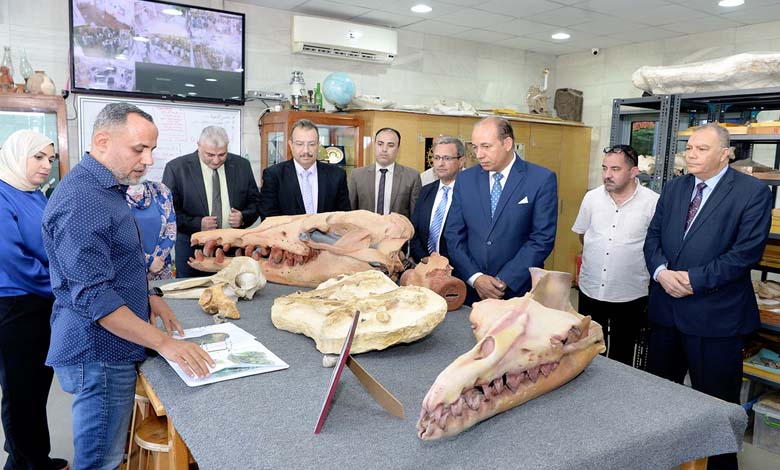Mansoura University Enters Guinness World Records with the Discovery of “Tutcetus” Fossil

The Vertebrate Paleontology Center at Mansoura University has achieved a global milestone by entering the Guinness World Records, after discovering the smallest fossil of an ancient whale belonging to the royal cetacean family. The fossil, named “Tutcetus”, dates back 41 million years and was named in honor of King Tutankhamun.
-
Egypt: Archaeological Discovery Includes a Sword of Ramses and Weapon Depots
-
Discovery of the Method Used by Ancient Iraqis to Predict Disasters and Epidemics
Dr. Hesham Sallam, head of the Vertebrate Paleontology Department at Mansoura University, revealed that the fossil was discovered in 2018. After conducting examinations and scientific research, it was confirmed to be a small whale from the royal whale lineage.
In statements to Cairo 24, Dr. Hesham added that the name “Tutcetus” was chosen in celebration of the 100th anniversary of the discovery of Tutankhamun’s tomb, marking a significant achievement, especially since most fossils bear foreign scientific names.
-
Jordan… Discovery of a decapitated body
-
Morocco Announces a Unique Discovery Preserved in Volcanic Ash
Dr. Hesham Sallam pointed out that the discovery garnered wide international attention and won numerous awards.
After submitting the necessary documentation to Guinness, it took a year and a half to secure the record, marking a major addition to the center’s achievements.
He confirmed that the Vertebrate Paleontology Center at Mansoura University, the first of its kind in Egypt, continues to make strides thanks to the university’s ongoing support. He emphasized that the main goal is to enhance Egypt’s standing as a country with a rich natural history spanning millions of years.












